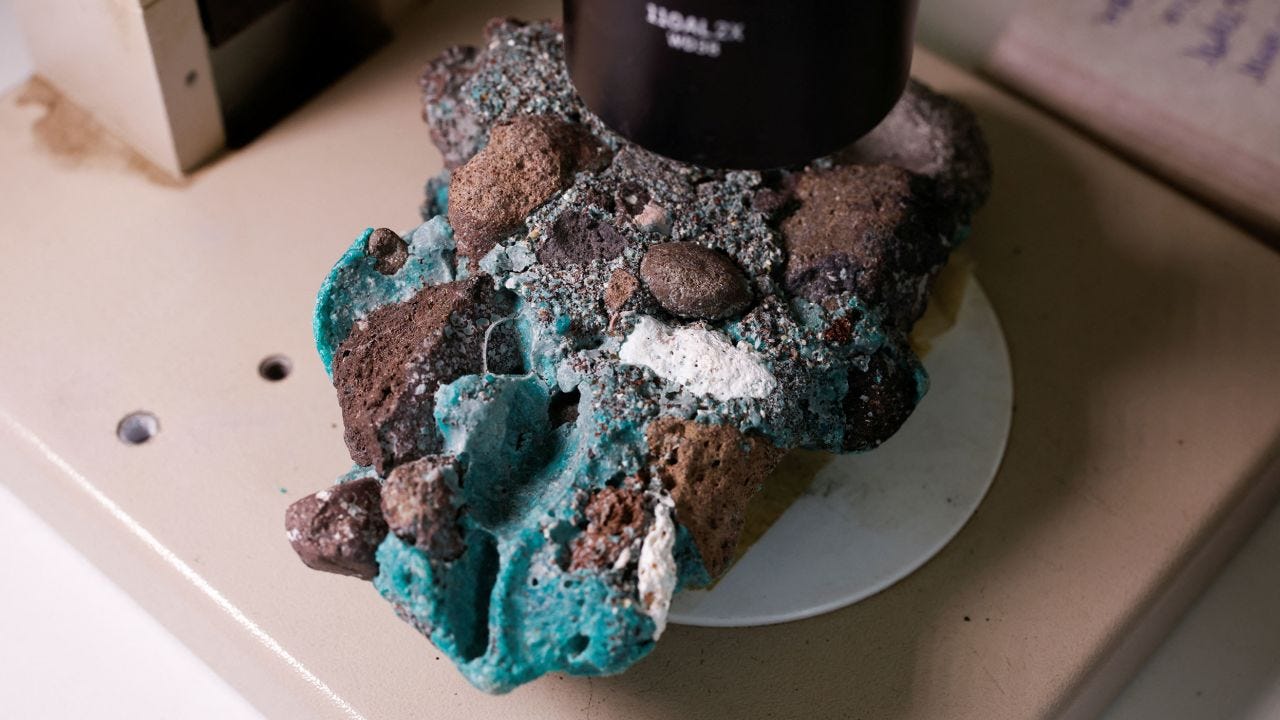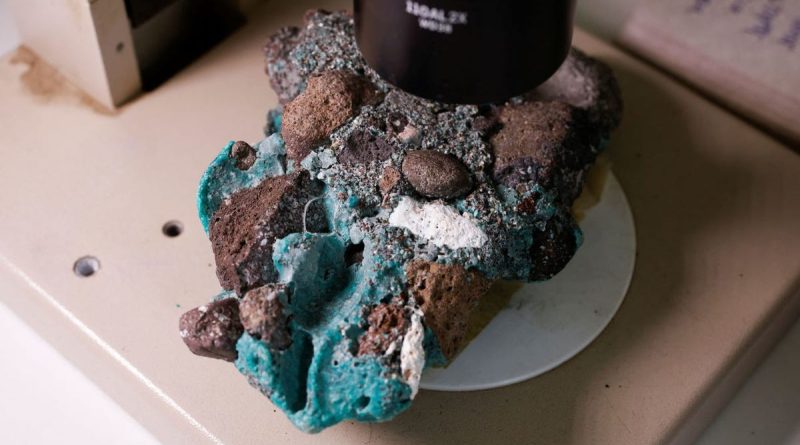Plastic rocks found on Brazil’s Trindade Island in pollution sign
[ad_1]

The latest sign that plastic pollution is a gigantic global problem: rocks fused with melted plastic have been found on a remote Brazilian island, best known as a nesting site for green turtles.
Plastic rocks have been previously found in various parts of the world. Researchers documented plastiglomerates – rock, sand and other debris fused together by melted plastic – in Hawaii in 2014, for instance, and pyroplastics, rock-like pebbles formed out of burnt plastic, on the southwest coast of England in 2019.
Now researchers have discovered a new kind of igneous rock, plastistone, formed almost completely from plastic, on Trindade Island, a volcanic island more than 600 miles east of Espírito Santo in Brazil, said Fernanda Avelar Santos, a geologist at the Federal University of Paraná in Brazil.
Another North Carolina home falls into Atlantic Ocean: And more are at risk
Previously: They pulled 63,000 pounds of trash from the Great Pacific Garbage Patch, but that’s just the start
She and others gathered samples in 2019 while studying geology on the South Atlantic island, which also houses a marine reserve. Typically, only 30 to 40 people live on the island and their refuse is recycled or carefully disposed of.
Their research, published in the Marine Pollution Bulletin journal in September 2022, details how they found the new plastic rock, along with samples of plastiglomerates and pyroplastics on the island’s beach. Pyroplastics were also found on the island’s coral reef.
“These plastic occurrences are an emerging type of marine pollution, and they are a potential source of contaminants for organisms that inhabit or ingest them,” Santos, who was the lead author on the study, told USA TODAY. “Finding this kind of marine litter on a nature reserve is an important warning of current human behavior.”
Much of the plastic comes from fishing nets, which are made of polypropylene and polyethylene, she said. The nets wash up on the beach and can melt when temperatures rise.
Tectonic forces: Nevada is slowly expanding 2 acres every year. Here’s why.
Plastic rocks may signal new geological era
Plastic pollution making its way into the formation of rocks suggests humans are having an effect on what was previously considered a natural occurrence, said Santos, who along with others are continuing research into plastic pollution on Trindade Island.
“This is new and terrifying at the same time, because pollution has reached geology,” Santos told Reuters.
The finding of plastic rocks also suggests, some experts say, that a new geological epoch has begun: the Anthropocene Epoch, so-called because “anthro” and “cene” are the Greek words for “man,” and “new,” according to the National History Museum in London. Currently, we are in the Holocene Epoch, which began 11,500 years ago at the end of the last Ice Age.
Regardless of whether this represents a new epoch, Santos told Reuters, “the pollution, the garbage in the sea and the plastic dumped incorrectly in the oceans is becoming geological material … preserved in the Earth’s geological records.”
Follow Mike Snider on Twitter: @mikesnider.
What’s everyone talking about? Sign up for our trending newsletter to get the latest news
